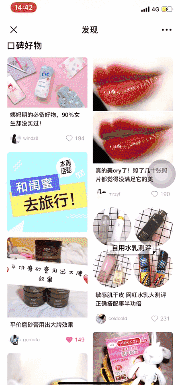Note: vue-waterfall2@2.x is adapt for vue3, if your app is vue2, please use vue-waterfall2@1.10.x, 1.10.x document
- auto adaption for width and height
- High degree of customization
- Swipe to the bottom to trigger on pc/android, pull up to trigger on ios
- Support lazy load(attribute with
lazy-src) - Easy to use, for PC/ios/android
If you have some questions,welcome to describe issues、suggestions;Thank you for your Star !
Welcome to my blog !!!
Common Demo
Lazyload Demo
Code Demo
npm i
npm run dev
npm i vue-waterfall2@latest --save
| Name | Default | Type | Desc |
|---|---|---|---|
| height | null | Number | height of container |
| col | 2 | Number | The number of column |
| width | null | Number | The width of each column |
| gutterWidth | 10 | Number | The value of margin |
| data | [] | Array | data |
| isTransition | true | Boolean | load image with transition |
| lazyDistance | 300 | Number | The distance of image lazy loading |
| loadDistance | 300 | Number | The distance of loadmore |
For images that need to be loaded lazily, the 'lazy-src' attribute needs to be used
<waterfall :col='col' :data="data" >
<img v-if="item.img" :lazy-src="item.img" alt="load error" />
</waterfall>| Name | Data | Desc |
|---|---|---|
| loadmore | - | Scroll to the bottom to trigger on PC / pull up to trigger on Mobile |
| scroll | obj | Scroll to trigger and get the infomation of scroll |
| finish | - | finish render |
this.$waterfall.forceUpdate() //forceUpdate
Notes:
- when using
remto layout, calculate the width after adaptation before passing the value. - Use the parent component of 'waterfall' if there is a problem with the style, remove CSS
scopedand try it
import { createApp } from "vue";
import waterfall from 'vue-waterfall2'
const app = createApp(App)
app.use(waterfall)<template>
<div class="container-water-fall">
<div><button @click="loadmore">loadmore</button> <button @click="mix">mix</button> <button @click="switchCol('5')">5列</button> <button @click="switchCol('8')">8列</button> <button @click="switchCol('10')">10列</button> </div>
<waterfall :col='col' :width="itemWidth" :gutterWidth="gutterWidth" :data="data" @loadmore="loadmore" @scroll="scroll" >
<div class="cell-item" v-for="(item,index) in data">
<div class="item-body">
<div class="item-desc">{{item.title}}</div>
<div class="item-footer">
<div class="avatar" :style="{backgroundImage : `url(${item.avatar})` }"></div>
<div class="name">{{item.user}}</div>
<div class="like" :class="item.liked?'active':''" >
<i ></i>
<div class="like-total">{{item.liked}}</div>
</div>
</div>
</div>
</div>
</waterfall>
</div>
</template>
/*
notes:
1. when using `rem` to layout, calculate the width after adaptation before passing the value.
2. Use the parent component of 'waterfall' if there is a problem with the style, remove CSS 'scoped' and try it
*/
import Vue from 'vue'
export default{
data(){
return{
data:[],
col:5,
}
},
computed:{
itemWidth(){
return (138*0.5*(document.documentElement.clientWidth/375)) #rem to layout, Calculate the value of width
},
gutterWidth(){
return (9*0.5*(document.documentElement.clientWidth/375)) #rem to layout, Calculate the value of margin
}
},
methods:{
scroll(scrollData){
console.log(scrollData)
},
switchCol(col){
this.col = col
console.log(this.col)
},
loadmore(index){
this.data = this.data.concat(this.data)
}
}
}